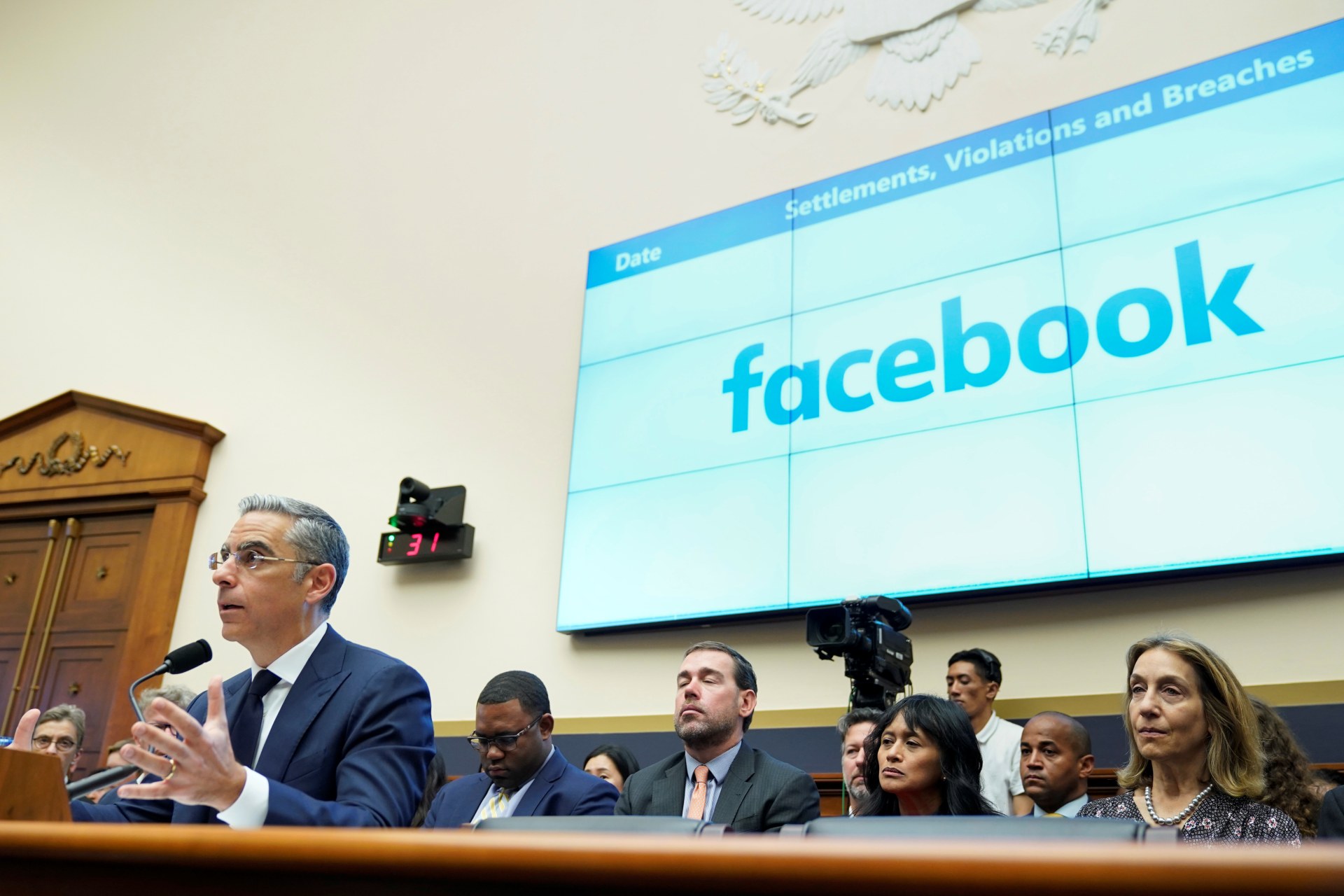Cyber Week in Review: July 19, 2019
Tech companies face intense scrutiny; viral FaceApp raises data privacy concerns; Huawei invests in Italy as pushback builds in the United States and UK; Indonesia announces a new digital tax; and users unknowingly download malicious fake app.

By experts and staff
- Published
Experts
![]() By Adam SegalIra A. Lipman Chair in Emerging Technologies and National Security and Director of the Digital and Cyberspace Policy Program
By Adam SegalIra A. Lipman Chair in Emerging Technologies and National Security and Director of the Digital and Cyberspace Policy Program
Tech Companies Face Intense Scrutiny: Tech companies are facing increased scrutiny from U.S. and EU regulators over competition and privacy issues. This week, representatives from Amazon, Apple, Facebook, and Google appeared on Capitol Hill as bipartisan concern builds regarding potentially anti-competitive business practices. Regulators in the EU also launched a formal investigation into Amazon, probing whether the company unfairly competed against other sellers on the platform and if the company used third-party seller data to advance its own sales.
Facebook has been under growing attacks by the U.S. government for inadequately protecting user data and faces new scrutiny about Libra, its proposed digital currency. Last Friday, the Federal Trade Commission (FTC) approved a $5 billion fine against Facebook for mishandling of user data. While this is the largest penalty ever imposed by the FTC, some lawmakers think it was not enough. Senator Richard Blumenthal wrote “this reported $5 billion penalty is barely a tap on the wrist, not even a slap. Such a financial punishment for purposeful, blatant illegality is chump change for a company that makes tens of billions of dollars every year.“ Federal Reserve Chairman Jerome Powell and Treasury Secretary Steven Mnuchin piled on to some of the concerns lawmaker’s have about about Facebook’s new digital currency. “While the project’s sponsors hold out the possibility of public benefits, including improved financial access for consumers, Libra raises many serious concerns regarding privacy, money laundering, consumer protection, and financial stability,” Powell said.
Viral FaceApp Raises Data Privacy Fears: FaceApp, the now-viral app that transforms people in photos to their older or younger selves, has raised fears that millions of users gave access to their personal data and camera rolls to Russia. The Democratic National Committee warned presidential campaigns against using the app and advised those that had to delete it immediately. Cybersecurity experts have found that the app backs up submitted photos to Amazon servers in the United States, and does not does upload users’ entire camera roll or other data to servers in Russia, as previously believed. Senate Minority Leader Charles Schumer asked the FBI and FTC to investigate FaceApp on the grounds its app could pose “national security and privacy risks for millions of U.S. citizens,” but as this Wired story notes, the problems with FaceApp are not that different than most other applications users download to their smartphones.
Huawei Invests in Italy as Pushback Builds: On Tuesday, the U.S. House and Senate introduced bills to maintain restrictions on Huawei, requiring Congressional approval before the company can be removed from the Entity List, and allowing Congress to disallow waivers. As a result of the months-long U.S. pressure, Huawei announced it will lay off more than 1,000 U.S.-based employees. In the UK, members of Parliament suggested that Huawei could be allowed in non-core 5G networks without threatening security, though U.S. pressure and ethical concerns over Huawei’s involvement in Chinese human rights abuses might in the end provide grounds for a complete ban.
Meanwhile, Huawei has committed to investing $3.1 billion in Italy to develop 5G networks, pending government approval.
Indonesia Announces a New Digital Tax: Indonesia is drafting new rules to impose a value-added tax on goods and services offered online, targeting large, multinational tech companies. The new tax would be applicable to foreign e-commerce companies, content providers, and other internet-based companies. The current tax on goods and services is 10 percent. Indonesian official have given few details on the proposed tax or how long it will take to draft and apply the new rules.
The announcement of the new rule in Indonesia comes amid a larger global push to determine how to tax digital multinational companies. Finance officials from the Group of Seven countries announced Thursday they will release a new digital tax plan by early 2020.
Users Unknowingly Download Malicious Fake App: Cybersecurity firm Symantec announced it found that MobonoGram, an unofficial version of the instant messaging application Telegram, was secretly running services and loading and browsing websites on over 100,000 devices between January and May 2019 without users‘ consent. The app was primarily downloaded by users in the United States, Saudi Arabia, and the United Arab Emirates, but was also accessible in Russia, Iran, and other countries. While MobonoGram has been removed from the Google Play Store, Symantec researchers found that the same app developers have another social messaging app with similar malicious behavior called Whatsgram.
